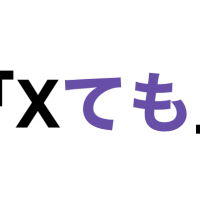Ikura sagashite-mo mitsukaranakatta-no-yo. (I searched everywhere but couldn't find it.)
Situation 1: Mr. Mita brings a pen over to his colleague Ms. Gray.
三田: これ、グレイさんのペン? ぼくのペン立てに あったんだけど。
グレイ: ああ、私のお気に入りのペン。いくら探しても 見つからなかったのよ。
Mita: Kore, Gurei-san-no pen? Boku-no pen-tate-ni atta-n-dakedo.
Gurei: Aa, watashi-no okiniiri-no pen. Ikura sagashite-mo mitsukaranakatta-no-yo.
Mita: Is this your pen, Ms. Gray? I found it in my pen stand.
Gray: Oh, it's my favorite pen! I searched everywhere for it but couldn't find it.
Today we'll introduce the expression Wh-word + Xても Y and its meaning. Wh-words are いくら (how), どんなに (how), だれ (who), 何 (なに, what), いつ (when) and どこ (where), but the expression is not a question. Wh-word + Xても Y means "No matter X, Y" or "However X, Y," and shows that Y (the result) doesn't change with any condition of X. This expression implies that the speaker insists the situation is Y even if X. Y is usually an unexpected result for the speaker and often conveys a negative nuance. Example: どんなにがんばっても、プロの選手(せんしゅ)にはなれない (As hard as I try, I'll never become a professional player). However, the expression sometimes conveys a positive meaning, as in: 彼(かれ)はどんなに忙(いそが)しくてもメールをくれる (No matter how busy he is, my boyfriend sends me emails). The pattern いくら/どんなに+ XてもY is used when the result is Y however great the frequency of X is. いくら is used in spoken language more than どんなに. いくら can also be used to express an amount of money, as in 費用 (ひよう)はいくらかかってもかまいません (I don't care how much it costs). Number + counter can be replaced by いくら/どんなに. Examples: 何回(なんかい)頼(たの)んでも、許可(きょか)が出(で)ない (However many times I ask, I can't get permission); 健太(けんた)は何度(なんど)注意(ちゅうい)しても、遅刻(ちこく)をする (No matter how many times we warn him, Kenta is late).
Situation 2: Ms. Shiba asks her colleague Mr. Tian about his trip to Singapore.
芝: シンガポールはどうでした? おいしいものが ありましたか。
ティエン: ええ、何を食べてもおいしかったですよ。
Shiba: Shingapōru-wa dō-deshita? Oishii mono-ga arimashita-ka?
Tian: Ee, nani-o tabete-mo oishikatta-desu-yo.
Shiba: How was Singapore? Did you have any good food?
Tian: Yes. Everything we ate was delicious.
Whether だれ, 何(なに), どこ, いつ or どう is used in Wh-word + Xても Y, the expression shows that Y occurs no matter what. Examples: どこに行(い)っても売(う)っていない (You won't find it sold anywhere); どう計算(けいさん)してみても、この数字(すうじ)にはなりません (I've calculated it in so many different ways, but the figures don't add up).
Bonus Dialogue: Little Mariko and her elder sister Takako ask their parents to take them somewhere for summer vacation.
まり子: 夏休(なつやす)み、どこかに行(い)こうよ。
父: 夏休みはどこに行(い)っても人(ひと)が多(おお)いよ。
母: どこに泊(と)まっても、何(なに)を食(た)べても、 値段(ねだん)が高(たか)いし。
たか子: 値段はいつ行(い)っても同(おな)じでしょう?
父: 休みの時(とき)は高くなるんだよ。家(いえ)にいた ほうがいいよ。
まり子: ええっ。そんなの、つまらないよ。
たか子: いくらお父(とう)さんたちを説得(せっとく)しようと思(おも)っても、なかなかうまくいかないな。じゃ、私(わたし)たちだけで遊(あそ)びに行く。
母: だめだめ、いくらたか子がしっかりしてきたと いっても、二人(ふたり)で行くのは心配(しんぱい)よ。やっぱりみんなで行きましょう。
Mariko: Let's go somewhere for summer vacation.
Father: During summer vacation, there'll be too many people wherever we go.
Mother: And prices will be high no matter where we stay or what we eat.
Takako: Prices are the same whenever we go, aren't they?
Father: They go up during the holidays. We should stay home.
Mariko: No! That's boring!
Takako: No matter how hard we try to persuade the two of you, it's no good. We'll just go by ourselves and have fun, then.
Mother: No, no! You may be becoming more responsible, Takako, but I'd be worried if you two went by yourselves. We'll all go together.



















With your current subscription plan you can comment on stories. However, before writing your first comment, please create a display name in the Profile section of your subscriber account page.